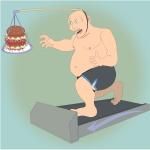The findings are from the National Poll on Healthy Aging, a survey of a “randomly selected stratified group” of adults administered by phone or online.
obesity
Join host Cameron English as he sits down Dr. Chuck Dinerstein to break down these stories on episode 29 of the Science Dispatch podcast:
“The researchers instead referred to obesity as a complex, chronic condition, and they were meeting to get to the bottom of why humans have, collectively, grown larger over the past half-century.
Struggling to lose weight? Exposure to air pollution might be partially to blame. That's what recent headlines would have you believe, anyway.
Join our directors of bio-sciences and chemistry, Cameron English and Dr. Josh Bloom, as they break down these stories on episode 24 of the Science Dispatch podcast.
Many scientists complain about widespread science denial—then declare with a straight face that men can get pregnant and sex is a spectrum. This hypocrisy should horrify everybody.
Has the body positivity movement gone too far? That's the question Dr.
There's no denying that social media platforms engage in ideologically motivated censorship.
The campaign to classify obesity as a victim status instead of a serious medical condition continues its rampage through popular culture.












